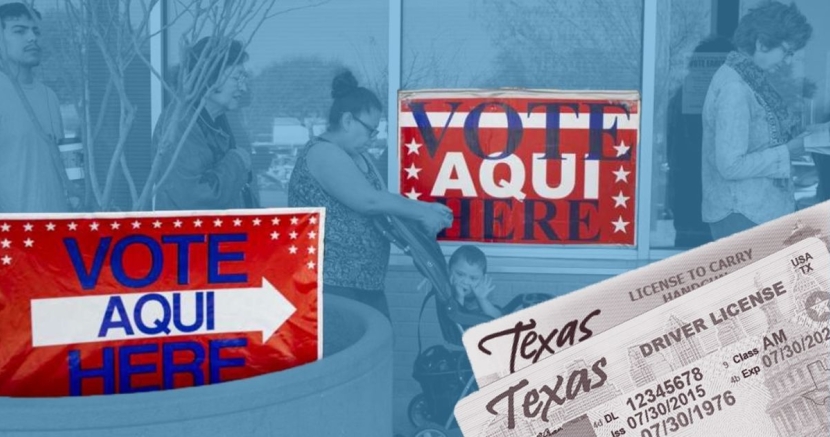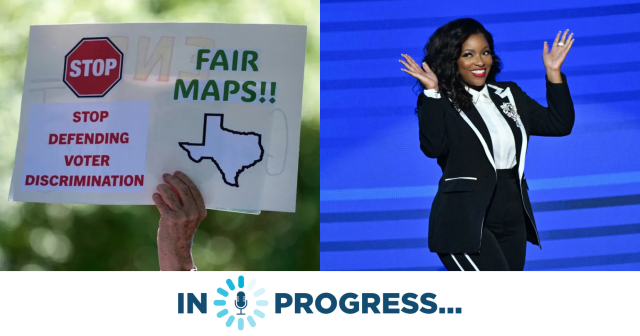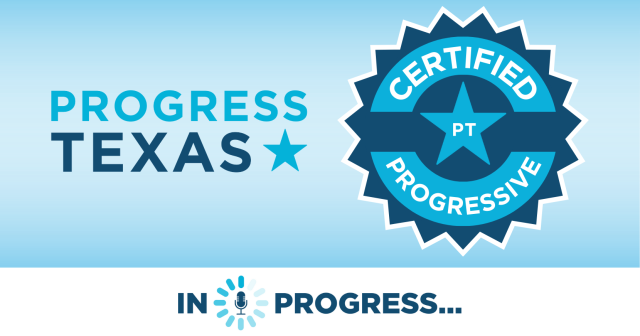Texas has been facing court battles ever since the implementation of the state’s discriminatory voter ID laws in 2011. It’s obvious that these laws were put into place by Texas Republicans to suppress voters, especially young voters and voters of color. But while these challenges have gone back and forth in the courts, the voter ID laws still remain.
With that being said, here’s what you should know so that you’re prepared to vote early starting on Oct. 13th through Oct. 30th, or on Election Day on Nov. 3rd.
Your driver’s license doesn’t have to have a star on it.
The last few years, the state of Texas has started issuing their Real ID-compliant driver licenses. These licenses feature a gold circle with a star imprint.
Starting in October 2020, these driver’s licenses will be needed to fly domestically as part of the Real ID Act Congress passed in response to 9/11. However, they are NOT necessary for voting. Old driver licenses will still be valid for other state-related purposes like driving, banking, and voting.
In fact, with the exception of the U.S. Citizenship Certificate, for voters aged 18-69, photo IDs can be expired for up to 4 years before and still be presented for voter qualification at the polling place. For voters 70 years of age or older, photo IDs can be expired for any number of years, as long as the identification is otherwise valid.
There are multiple forms of ID that voters can use.
When you arrive at the polling place, you will be asked to present one of the following seven (7) forms of photo identification:
- Texas Driver’s license
- Texas Election Identification Certificate
- Texas personal identification card issued by DPS
- Texas license to carry a handgun issued by DPS
- United States military identification card containing the person’s photograph
- United States citizenship certificate containing the person’s photograph
- United States passport
Remember, with the exception of the U.S. Citizenship Certificate, these IDs can be expired by up to four years.
If you are registered to vote, but do not have any of the seven forms of photo ID listed above, you can complete and sign a “declaration of reasonable impediment” and vote a regular ballot if you present one of the following identification alternatives:
- Valid voter registration certificate (card)
- Certified birth certificate (original)
- Current utility bill
- Bank statement
- Government check
- Paycheck
- Any other government document with the individual’s name and address (original)
Registered voters without photo ID, but who present one of the alternate documents listed above and sign the declaration form, should be able to vote a regular ballot.
What if my ID address does not match my current voter registration address?
That's fine. Your address doesn't need to match, just your name.
The state does not accept student IDs for voting purposes.
Unfortunately, the state of Texas does not consider student IDs a valid form of ID for voting. This is purposeful, and a tactic to suppress college voters.
Student IDs have a photo and are issued by accredited institutions, meaning they should be just as valid than a Texas handgun license. Democratic lawmakers in the Texas legislature have introduced multiple bills over the years trying to get this rule changed.
You must take your ID with you to vote.
If you’re voting in person, you must take your ID with you so that you can present it to the poll workers. However, if you’re eligible to vote by mail and choose to vote by mail, then an ID is not necessary. You must be registered to vote and fill out the mail-in voting application. Here’s more information about how to vote by mail in Texas.
If you have any problem casting your ballot call:
- 866-OUR-VOTE – English
- 888-Ve-Y-Vota – Spanish and English
- 888-API-VOTE – Vietnamese, Mandarin, Cantonese, Bengali also known as Bangla, Hindi, Urdu, Korean, Tagalog and English
- 844-Yalla-US – Arabic and English
- 301-818-8683 - Video ASL
- 888-796-8683 - Disability Rights Texas
These Election Protection hotlines are staffed by volunteer attorneys.
Voter harassment is prohibited by law. That means election officials cannot question a voter about the use of an ID type, and poll watchers may never question a voter about voter ID issues.
DONATE
Your donation supports our media and helps us keep it free of ads and paywalls.










